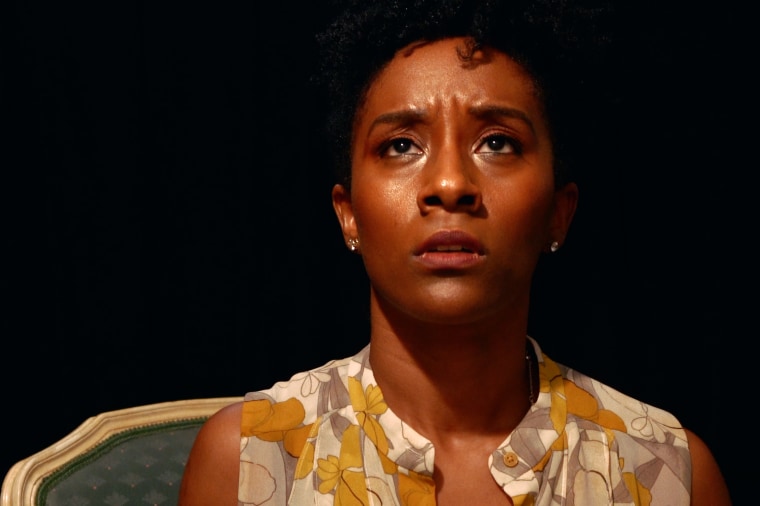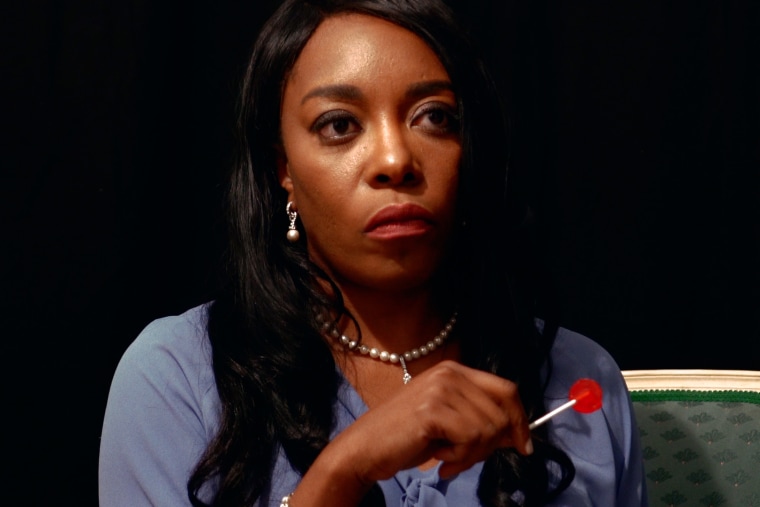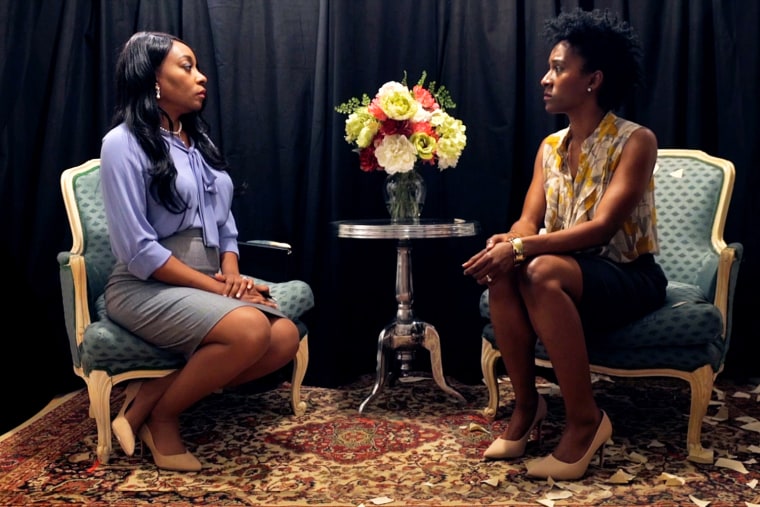When Sydney Charles and Celeste Cooper watched Oprah Winfrey's interview with Prince Harry and Meghan Markle, they reacted similarly to many other viewers: They were struck by Markle's honesty about both her mental health struggles and her allegations of racism within the British royal family.
But for Charles and Cooper, watching the interview also felt uncanny: Just a few months previously, the pair had performed in a play — "Duchess! Duchess! Duchess!" which was written by Vivian J.O. Barnes and is being streamed online by Chicago's Steppenwolf Theater Company — that nearly simulated the sit-down. Charles and Cooper — both Black women — play a current and a soon-to-be duchess who meet for the first time to discuss the protocol of joining the royal family. They also confront the realities of racism and sexism within the institution.
After they watched such a similar conversation play out between Winfrey and Markle, the play they performed — which Barnes wrote in 2018 — felt prophetic, the actors said.
"It was wild," Charles said. "I thought: 'What? This is witchcraft!'"

In the play — which debuted online only three days after the interview — Charles, who plays the Duchess, sits down with Cooper, the Soon-to-be Duchess, as their characters are identified, ostensibly to go over "the rules" that will accompany her new public role: how and when to sit, when to speak, what to say and, eventually, how to cope with the pressures of royal life.
The incoming duchess finds the expectations exasperating from the start and wrongly assumes that her predecessor will offer a sense of sisterhood and a place of refuge where both can drop their guards. But the Duchess largely accepts the restrictions that bind her, until the Soon-to-be Duchess — with her exhortations to "burn it down" — inspires the Duchess to undertake a dramatic, and subversive, act of resistance.
Barnes, the playwright, heard echoes of that spirit of resistance in how Markle spoke out against the monarchy.
"The play starts out very much exactly how you think it's going to go, in terms of 'we're doing princess lessons,' and then it pretty quickly takes a hard right," she said. "There are similarities, or metaphorical resonances, between our world and the heightened world of the play."
The resonances, Barnes said, emerge in the racist and sexist discrimination and stereotyping that Black women face — particularly within predominantly white institutions like the British monarchy, which they are expected to help uphold while also remaining out of view, she said. In her conversation with Winfrey, Markle pulled the curtain back on that reality, discussing how she was barely allowed to leave Kensington Palace for months after she was accused of being overexposed in the media.

"By being that visible, as that person ... you sort of actually become invisible, in many ways, because people aren't actually taking into account who you are — they're only seeing you for the symbolism that you represent," Barnes said of Markle.
Charles and Cooper drew on their own lived experiences in "Duchess! Duchess! Duchess!" making the struggles they portrayed in the play feel personal.
"It speaks to things I've heard about Meghan Markle, as well as my experiences being a Black woman in America being in white spaces and just having to possibly shrink myself," Cooper said.
Charles likened her role as the Duchess to her experience working in corporate America, which she said she left in 2016 because of the discrimination she and other Black women experienced.
"You're expected to represent the entire Black woman conglomerate, and that involves speaking up when you're supposed to, being sassy when you're supposed to, but not too sassy, or being docile but also being strong," she said. "I feel like all Black women everywhere, especially Meghan Markle and the Duchess in this piece, they're expected to and required to uphold the tradition that also oppresses them — and the weight of that is backbreaking. It's unnatural for any human, any soul, to carry that."
Barnes wrote "Duchess! Duchess! Duchess!" nearly three years ago, as a first-year master of fine arts student at the University of California, San Diego, where she's now a third-year student. She was initially inspired by pictures of Kate Middleton, the Duchess of Cambridge, posing outside St. Mary's Hospital in London — in heels and with freshly blow-dried hair — mere hours after having given birth to each of her three children.
"I was like, 'What in the world is this, and why is this happening?'" she said.
When Harry and Meghan married and became the Duke and Duchess of Sussex, their wedding prompted Barnes to consider how she could write a play that would offer a new spin on the royals without pitting the two women against each other.
She wondered what would happen if the play featured "a Meghan-esque person and a new Black person that's coming into the institution" after Markle "has been in it for a while?"
Barnes first staged the play in person in 2019, at a festival at UC San Diego, which led to the collaboration with Steppenwolf, she said. The pandemic forced the play from the theater's Chicago stage to a virtual one, which required Cooper and Charles to record their performances independently over a few days at the end of last year in their apartments.
Each actor was mailed a camera and technical equipment. Each took turns acting out her role via Zoom to support the other while she performed hers formally for the camera.
For Barnes, the isolating conditions under which the team recorded the play highlighted how the relationship between the characters evolves throughout, from icy to interdependent.
"The play specifically takes place in this closed room, where they can't be seen, and they're able to actually see each other," she said.
And after having watched Markle's interview with Winfrey last month, Charles and Cooper saw the Duchess of Sussex — and their own characters — in new lights.
"That made me look at the show differently — Meghan is kind of a combination of both characters," Cooper said. "With the interview, there's a part of her that was 'burning it down.'"
